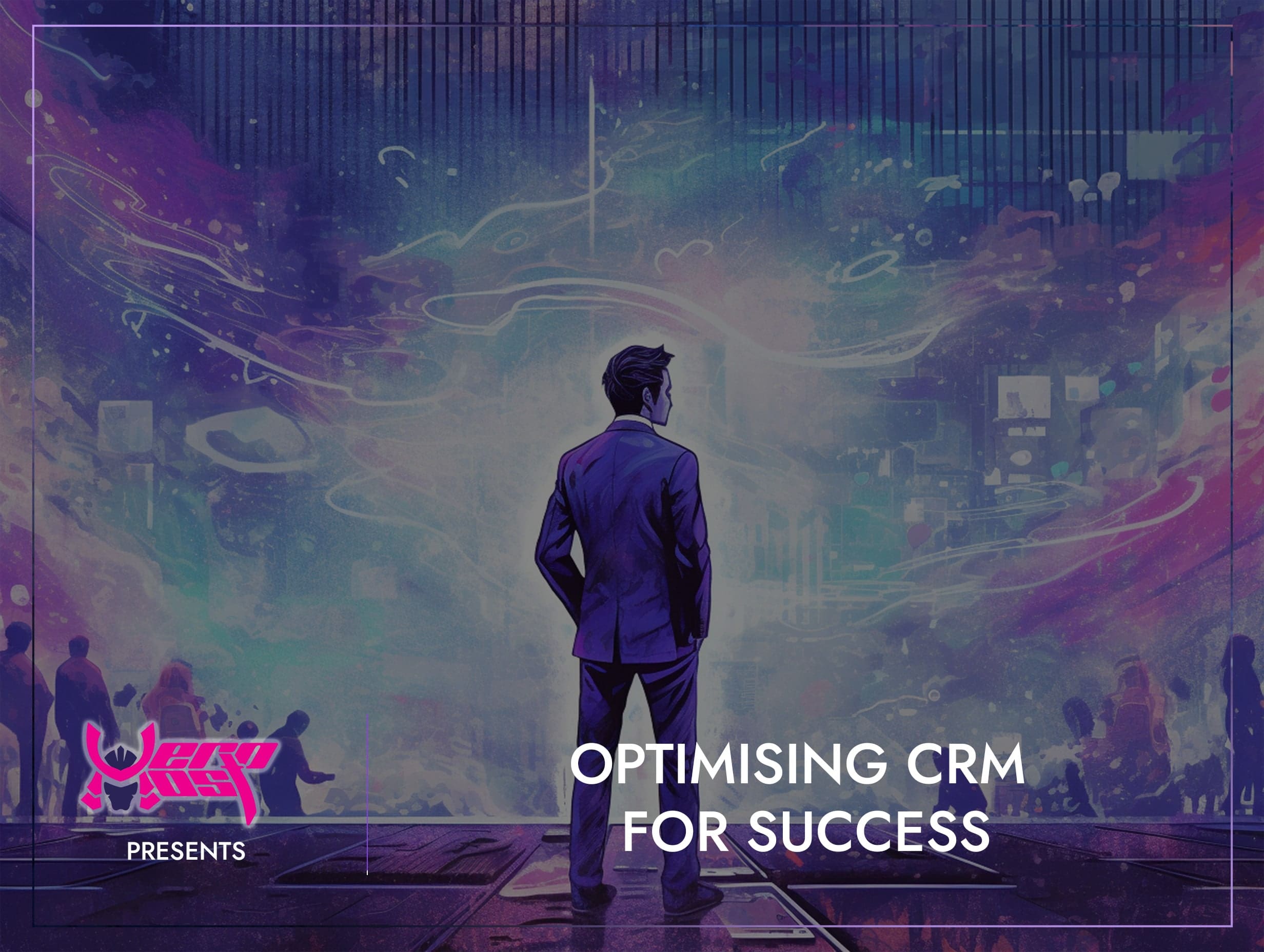Optimising CRM for Success
- Home
- Marketing Guides
- Optimising CRM for Success

- Mikey Ryu
- May 10, 2024
- 0
Optimising CRM for Success
In the competitive landscape of modern business, where customer relationships are the cornerstone of success, the effective utilisation of Customer Relationship Management (CRM) systems has become paramount. However, merely implementing a CRM system is not enough to ensure success. To truly unlock its potential, businesses must focus on optimising their CRM strategies continuously. In this comprehensive guide, we’ll explore the importance of optimisation in CRM and provide actionable insights into key areas for maximising its effectiveness, from data management and analytics to customer experience enhancement and automation. Whether you’re a small startup or a multinational corporation, optimising your CRM strategy is essential for driving growth, improving efficiency, and delivering exceptional customer experiences.
The Importance of Optimisation in CRM
Optimisation is the process of refining and enhancing CRM strategies and processes to maximise their effectiveness and impact. In today’s fast-paced business environment, where customer expectations are constantly evolving, optimisation is essential for staying ahead of the curve and maintaining a competitive edge. By continuously refining CRM strategies, businesses can drive better results, improve efficiency, and deliver superior customer experiences.
Continuous Data Management: Maintaining Clean and Accurate Data
Data management is the foundation of effective CRM, and maintaining clean and accurate data is essential for success. Dirty data—data that is incomplete, inaccurate, or outdated—can undermine the effectiveness of CRM initiatives and lead to missed opportunities and poor decision-making. By implementing robust data management practices, such as regular data cleansing, deduplication, and validation, businesses can ensure that their CRM systems contain reliable and actionable data. Moreover, by investing in data quality tools and technologies, businesses can automate data management processes and streamline operations, saving time and resources while improving data accuracy and integrity.
Analytics and Insights: Leveraging Data for Informed Decision-Making
Data is a goldmine of valuable insights that can drive informed decision-making and strategic planning. By leveraging analytics tools and techniques, businesses can extract actionable insights from customer data and performance metrics, enabling them to identify trends, patterns, and opportunities for optimisation. From predictive analytics and customer segmentation to trend analysis and churn prediction, analytics empowers businesses to make data-driven decisions that drive growth and enhance the customer experience. Moreover, by integrating analytics into CRM systems, businesses can gain real-time visibility into key metrics and KPIs, allowing them to monitor performance and track progress towards their goals.
Customer Experience Enhancement: Delivering Exceptional Service
In today’s customer-centric economy, delivering exceptional service is crucial for building and maintaining strong customer relationships. CRM systems play a vital role in enhancing the customer experience by providing businesses with the tools and capabilities to personalise interactions, anticipate needs, and deliver timely and relevant communications. By leveraging CRM data and insights, businesses can tailor their interactions with customers to meet their preferences and expectations, whether through personalised marketing campaigns, proactive customer support, or targeted product recommendations. Moreover, by integrating CRM with other customer-facing systems, such as marketing automation and helpdesk software, businesses can create a unified and cohesive customer experience across all touchpoints.
Integration with Other Systems: Creating a Unified Business Ecosystem
Integration with other systems is essential for creating a unified business ecosystem that streamlines operations and enhances efficiency. By integrating CRM with other core systems, such as ERP, finance, and supply chain management, businesses can break down silos, eliminate duplicate data entry, and gain a holistic view of customer interactions and transactions. Moreover, by integrating CRM with marketing automation, e-commerce platforms, and social media channels, businesses can create seamless omnichannel experiences that drive engagement and loyalty. By investing in integration technologies and leveraging APIs and middleware, businesses can create a flexible and scalable architecture that supports their evolving needs and enables future growth and innovation.
Customisation and Personalisation: Tailoring CRM to Your Business Needs
One size does not fit all when it comes to CRM. To truly optimise CRM for success, businesses must customise and personalise their CRM systems to meet their unique business needs and objectives. From customising data fields and workflows to creating personalised dashboards and reports, businesses can tailor their CRM systems to align with their specific processes and requirements. Moreover, by leveraging advanced customisation and personalisation features, businesses can create tailored experiences for individual customers, delivering the right message to the right person at the right time. By investing in customisation tools and resources, businesses can unlock the full potential of their CRM systems and drive better results.
Automation and Efficiency: Streamlining Processes for Better Results
Automation is a game-changer when it comes to optimising CRM for success. By automating repetitive tasks and workflows, businesses can streamline operations, improve efficiency, and free up time for more strategic activities. From lead scoring and routing to email marketing and sales follow-ups, automation enables businesses to deliver timely and relevant communications to customers, driving engagement and conversion. Moreover, by integrating CRM with AI and machine learning technologies, businesses can automate predictive analytics, personalisation, and decision-making processes, further enhancing efficiency and effectiveness. By embracing automation, businesses can unlock new levels of productivity and innovation, driving growth and success in today’s competitive marketplace.
In conclusion, optimising CRM for success is essential for driving growth, improving efficiency, and delivering exceptional customer experiences. By focusing on key areas such as data management, analytics, customer experience enhancement, integration, customisation, and automation, businesses can unlock the full potential of their CRM systems and stay ahead of the competition. Whether you’re a small startup or a multinational corporation, investing in CRM optimisation is essential for driving long-term success and achieving your business goals.
Search
Categorys
- Branding (12)
- Business Growth Guides (3)
- Business Insights (3)
- Content Marketing (43)
- Domain Authority (19)
- Email Marketing (28)
- Google Analytics & Search Console (5)
- Hack or Not (2)
- Hero Host News (0)
- Inbound Marketing (32)
- Lessons From Asia (40)
- Marketing Guides (11)
- Martial Arts Journey (14)
- Outbound Marketing (8)
- Search Engine Optimisation (SEO) (41)
- Social Media Marketing (38)
- Web Design (20)
- Website Hosting (4)
- Wordpress (2)






